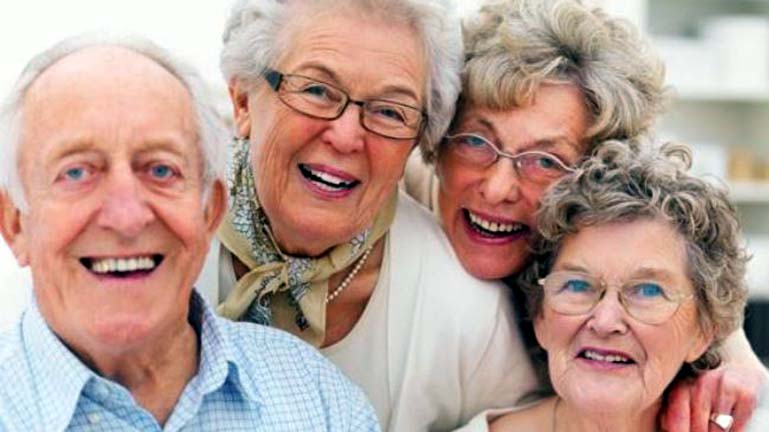
Life desk :
Feeling younger than the actual age might be good for older people, say British researchers.
They found that older people who feel three or more years younger than their age had a lower death rate compared to those who even felt they are a year older than their actual age.
While examining the relationship between self-perceived age and mortality, the team from University College London found that self-perceived age can reflect assessments of health, physical limitation and well-being in later life and many older people feel younger than their actual age.
To reach this conclusion, authors Isla Rippon and Andrew Steptoe used data from a study on aging and included 6,489 individuals, whose average chronological age was 65.8 years but whose average self-perceived age was 56.8 years.
Most of the adults (69.6 percent) felt three or more years younger than their actual age.
While 25.6 percent had a self-perceived age close to their real age, 4.8 percent felt more than a year older than their chronological age.
Mortality rates during an average follow-up of 99 months were 14.3 percent in adults who felt younger, 18.5 percent in those who felt about their actual age and 24.6 percent in those adults who felt older, according to the study results.
The relationship between self-perceived age and cardiovascular death was strong but there was no association between self-perceived age and cancer death.
“Individuals who feel older than their actual age could be targeted with health messages promoting positive health behaviour and attitude towards aging,” the authors said.
The research paper was published online in the Journal of the American Medical Association’s publication Internal Medicine.
-Internet
Feeling younger than the actual age might be good for older people, say British researchers.
They found that older people who feel three or more years younger than their age had a lower death rate compared to those who even felt they are a year older than their actual age.
While examining the relationship between self-perceived age and mortality, the team from University College London found that self-perceived age can reflect assessments of health, physical limitation and well-being in later life and many older people feel younger than their actual age.
To reach this conclusion, authors Isla Rippon and Andrew Steptoe used data from a study on aging and included 6,489 individuals, whose average chronological age was 65.8 years but whose average self-perceived age was 56.8 years.
Most of the adults (69.6 percent) felt three or more years younger than their actual age.
While 25.6 percent had a self-perceived age close to their real age, 4.8 percent felt more than a year older than their chronological age.
Mortality rates during an average follow-up of 99 months were 14.3 percent in adults who felt younger, 18.5 percent in those who felt about their actual age and 24.6 percent in those adults who felt older, according to the study results.
The relationship between self-perceived age and cardiovascular death was strong but there was no association between self-perceived age and cancer death.
“Individuals who feel older than their actual age could be targeted with health messages promoting positive health behaviour and attitude towards aging,” the authors said.
The research paper was published online in the Journal of the American Medical Association’s publication Internal Medicine.
-Internet

